Alexis Dick
Championing Democracy: My Top 100 Essay in the World at St. Gallen Symposium
In defence of democracy, I decided to write an essay that was selected among the top 100 essays in the world at the St. Gallen Symposium, which is considered to be the most prestigious essay competition in the world. In this blog, I will tell you a bit about the motivations behind my essay, as well as my experience of being nominated as a Future Leader at the St. Gallen Symposium.
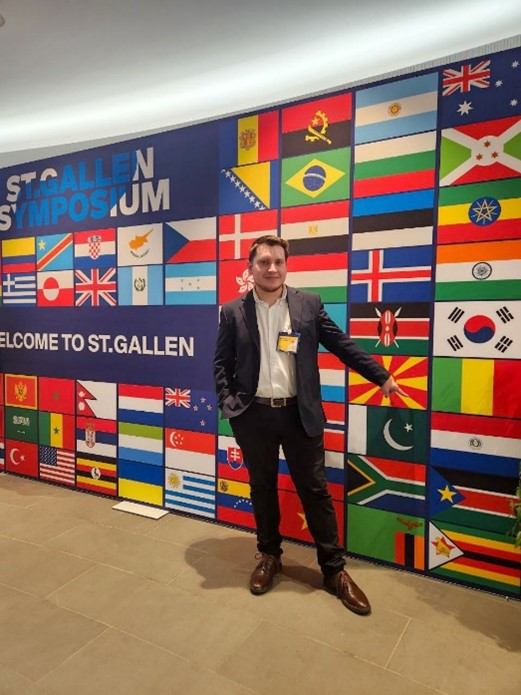
The essay competition
Founded in 1969, the St. Gallen Symposium is the world’s most longstanding and relevant platform for cross-generational dialogue. By bringing together leaders of today and tomorrow on key questions of the most pressing issues of our time, the Symposium aims to inspire current decision-makers to lead with the next generation in mind.
To become a Future Leader in the St. Gallen Symposium, you need to qualify with an excellent essay in a Global Essay Competition. The award jury consists of leading executives, journalists, and professors from all around the world, as well as top academics from the University of St. Gallen and the ETH Zurich. If you are successful and are among the 100 top essays in the world, you automatically qualify to become a Leader of Tomorrow and participate in the Symposium with expenses for travel and accommodation fully covered.
Regarding the chosen topic
Considering the above, I wrote an essay in defence of democracy and the Rule of Law given its situation in the world, titled, ‘The Scarcity Corroding Modern Democracies: Unravelling the Global Rule of Law Recession, Comprehending its Distortion, and Exploring Potential Improvements’.
According to The 2023 Global State of Democracy report by IDEA, globally, there is a sustained democracy contraction, with declines in half of the countries. One aspect that experienced significant setbacks in all regions of the world was the Rule of Law. The World Justice Project's (WJP) 2023 Rule of Law Index provides further insights regarding these setbacks.
According to WJP, the Rule of Law has again deteriorated in most countries, affecting more than 6 billion people. Notably, this index, in its sixth consecutive edition, reflects a global regression in the Rule of Law. This coincides with the aforementioned IDEA report, which indicates a sixth consecutive year of decline in global democratic processes as if the Rule of Law index were an X-ray of the state of democracy. Other findings show a decline in the Rule of Law in 59% of the countries. Additionally, since 2016, 78% of the nations experienced a decline in it.
In my essay, I argue that this issue arises from managing democracies through the law of rules rather than the true essence of the Rule of Law, distorting its intended purpose. I illustrate this with two case studies—Spain in Europe and Paraguay in Latin America, which aim for diverse perspectives, considering political systems and development levels.
My solution involves integrating evidence-based policy into legislative processes to strengthen the Rule of Law in the face of parliamentary majorities without limits. Originating in the UK, evidence-based policy ensures that laws are grounded in empirical or scientific evidence.
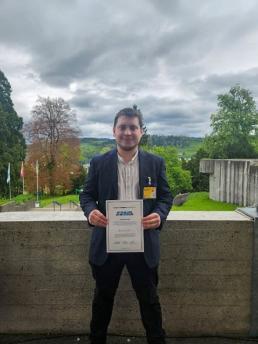
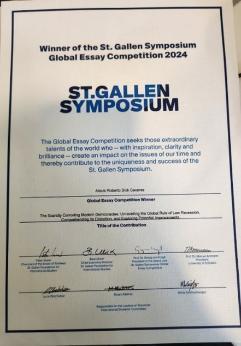
The experience in Switzerland
As for the experience in Switzerland, it was amazing. The programme was spread over a week and included both tourist activities and participation in the symposium covering a number of topics with a focus on this year's theme, ‘Confronting Scarcity’.
The activities began with a reception for all participants. To strengthen ties with the local community and benefit from cultural exchange with Switzerland, all Leaders of Tomorrow were hosted by young residents in their homes.
On the second day we visited the village of Brülisau and the beautiful mountain of Hoker Kasten. At the top of the mountain overlooking the Rhine, we had brunch in a revolving restaurant. Later, we took a city tour through the beautiful city of St. Gallen.

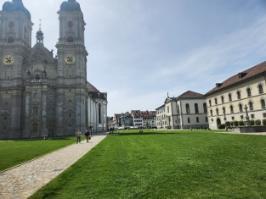
On day three we explored the topic of Confronting Scarcity in more detail and had the opportunity to listen to and interact with the authorities of the Canton of St. Gallen.
Thursday and Friday were dedicated to participation in the Symposium and engaging with senior decision-makers, highlighting the intergenerational dialogue character of the activity. We listened to and met with leaders such as the Federal Councillor of the Swiss Confederation, the Prime Minister of the Principality of Liechtenstein, the Minister for Manpower & Second Minister for Trade and Industry of Singapore, the Minister of Foreign Affairs of Hungary. There were also, representatives from the private and civil sectors, the CEO of Lufthansa, the CEO of Coca-Cola, and the Chairman of the Board of ABB.
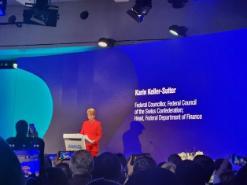
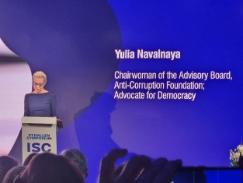
Experience Overview
My experience participating as a Leader of Tomorrow in St. Gallen was great and exceeded all my expectations. Meeting other young leaders from all over the globe about the world's most pressing challenges helps to find more creative solutions. Engaging with senior leaders in an intergenerational dialogue is a unique possibility that can amplify the impact of young people on decisions being made at an international level. Overall, it is a highly recommended event and I encourage other young people to write essays that seek creative solutions to the world's most pressing problems and participate in the Symposium.

